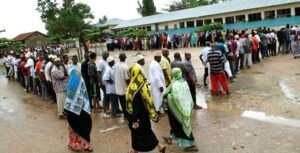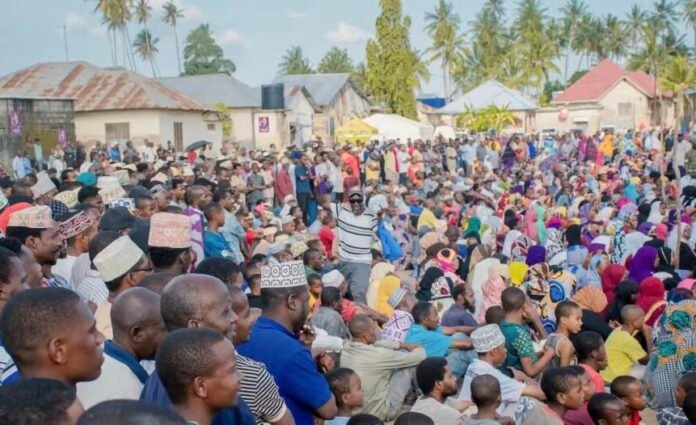Violent protests broke out across Tanzania’s commercial capital, Dar es Salaam, on Wednesday as citizens headed to the polls in an election widely expected to return President Samia Suluhu Hassan to power. The vote has been marred by the exclusion of top opposition candidates and reports of unrest in several neighbourhoods.
Internet connectivity across the country was severely disrupted, according to monitoring group NetBlocks, while videos circulating on social media—yet to be independently verified—showed groups of young demonstrators clashing with security forces and a petrol station engulfed in flames. Witnesses reported tear gas being deployed in some areas as protesters attempted to march toward the Selander Bridge, which leads to the city center.
The government and police have not commented on the unrest. Meanwhile, rights groups and opposition figures have accused authorities of restricting dissent and undermining democratic participation.
The National Electoral Commission disqualified the main opposition party, CHADEMA, earlier this year after it refused to sign an electoral code of conduct. Its leader, Tundu Lissu, is currently facing treason charges, which he denies. The second-largest opposition party, ACT-Wazalendo, also saw its presidential candidate, Luhaga Mpina, removed from the ballot following an objection from the attorney general. As a result, only minor parties are contesting against Hassan.
“There is no election in Tanzania. This is a coronation,” said Deogratius Munishi, CHADEMA’s secretary for foreign affairs, in an interview with Citizen Television in Kenya.
President Hassan, who voted in the administrative capital Dodoma, urged citizens to participate peacefully. “I encourage all Tanzanians to come out, exercise their rights, and choose their leaders,” she said. Polls were scheduled to close at 4 p.m. local time, with results expected within three days.
Hassan’s ruling party, Chama Cha Mapinduzi (CCM), has dominated Tanzanian politics since independence. Initially praised for easing political restrictions following the death of former president John Magufuli in 2021, Hassan has faced growing criticism over alleged abductions and intimidation of government critics in recent years.

Earlier this month, the family of a former ambassador to Cuba—now a prominent government critic—said he was abducted by unidentified men. Police confirmed an investigation is underway. President Hassan previously ordered an inquiry into similar incidents last year, though findings have not yet been released.
As voting concludes, tensions remain high in Dar es Salaam, where the day’s violence has underscored growing discontent over political freedoms in one of East Africa’s largest democracies.
Liberia Reshuffles Mining Leadership as It Courts U.S. Investment in Critical Minerals
Source:Africa Publicity








